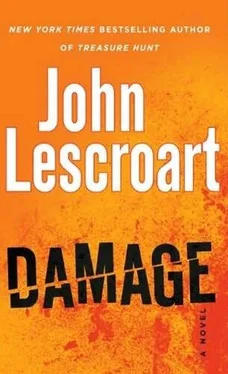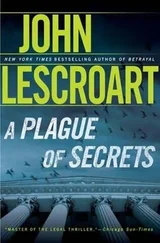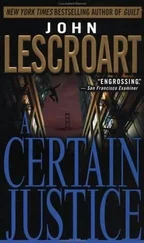John Lescroart - Damage
Здесь есть возможность читать онлайн «John Lescroart - Damage» весь текст электронной книги совершенно бесплатно (целиком полную версию без сокращений). В некоторых случаях можно слушать аудио, скачать через торрент в формате fb2 и присутствует краткое содержание. Жанр: Триллер, на английском языке. Описание произведения, (предисловие) а так же отзывы посетителей доступны на портале библиотеки ЛибКат.
- Название:Damage
- Автор:
- Жанр:
- Год:неизвестен
- ISBN:нет данных
- Рейтинг книги:3 / 5. Голосов: 1
-
Избранное:Добавить в избранное
- Отзывы:
-
Ваша оценка:
Damage: краткое содержание, описание и аннотация
Предлагаем к чтению аннотацию, описание, краткое содержание или предисловие (зависит от того, что написал сам автор книги «Damage»). Если вы не нашли необходимую информацию о книге — напишите в комментариях, мы постараемся отыскать её.
From New York Times bestseller John Lescroart comes an explosive look at the seductive power of revenge and the terrible costs of justice.
The Curtlees are the most powerful family in San Francisco, unscrupulous billionaires who ve lined every important pocket in the Bay Area in pursuit of their own ascent. So when the family's heir, Ro Curtlee, was convicted of rape and murder a decade ago, the fallout for those who helped to bring him to justice was swift and uncompromising. The jury foreman was fired from his job and blacklisted in his industry. The lead prosecutor was pushed off the fast track, her dreams of becoming DA dashed. And head homicide detective Abe Glitsky was reassigned to the police department s payroll office. Eventually, all three were able to rebuild their fragile, damaged lives.
And then Ro Curtlee's lawyers won him a retrial, and he was released from jail.
Within twenty-four hours, a fire destroys the home of the original trial's star witness, her abused remains discovered in the ruins. When a second fire claims a participant in the case, Abe is convinced: Ro is out for revenge. But with no hard evidence and an on-the-take media eager to vilify anyone who challenges Ro, can Abe stop the violence before he finds himself in its crosshairs? How much more can he sacrifice to put Ro back behind bars? And just how far across the line is he prepared to go in pursuit of justice?
The Curtlees are the most powerful family in San Francisco, unscrupulous billionaires who ve lined every important pocket in the Bay Area in pursuit of their own ascent. So when the family's heir, Ro Curtlee, was convicted of rape and murder a decade ago, the fallout for those who helped to bring him to justice was swift and uncompromising. The jury foreman was fired from his job and blacklisted in his industry. The lead prosecutor was pushed off the fast track, her dreams of becoming DA dashed. And head homicide detective Abe Glitsky was reassigned to the police department s payroll office. Eventually, all three were able to rebuild their fragile, damaged lives.
And then Ro Curtlee's lawyers won him a retrial, and he was released from jail.
Within twenty-four hours, a fire destroys the home of the original trial's star witness, her abused remains discovered in the ruins. When a second fire claims a participant in the case, Abe is convinced: Ro is out for revenge. But with no hard evidence and an on-the-take media eager to vilify anyone who challenges Ro, can Abe stop the violence before he finds himself in its crosshairs? How much more can he sacrifice to put Ro back behind bars? And just how far across the line is he prepared to go in pursuit of justice?













